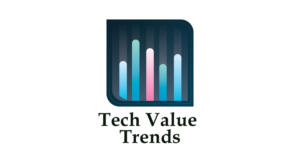As we stand on the cusp of a data-driven era, understanding the trajectory of zettabyte-scale data is crucial for businesses, technologists, and individuals alike. This article delves into the future of zettabyte, exploring its implications, challenges, and the innovations shaping our data-centric world.
What Is a Zettabyte?
A zettabyte is a unit of digital information storage equal to one sextillion bytes, or 1,000 exabytes. To put this into perspective:
- 1 Zettabyte (ZB) = 1,000 Exabytes (EB)
- 1 Zettabyte = 1,000,000 Petabytes (PB)
- 1 Zettabyte = 1,000,000,000 Terabytes (TB)
- 1 Zettabyte = 1,000,000,000,000 Gigabytes (GB)
This immense scale underscores the exponential growth of data in our digital age.
The Exponential Growth of Data
The proliferation of internet-connected devices, social media platforms, IoT (Internet of Things) devices, and digital services has led to an unprecedented surge in data generation. According to a report, the total amount of data stored in the cloud is projected to reach 100 zettabytes by 2025, constituting 50% of the world’s data at that time.
Similarly, a study estimates that the global data sphere will grow from 33 zettabytes in 2018 to 175 zettabytes by 2025, more than a fivefold increase.
This exponential growth is driven by several factors:
- Increased Internet Usage: The number of internet users worldwide is expected to rise from 6 billion in 2022 to 7.5 billion by 2030, contributing significantly to data generation.
- Advancements in Technology: The adoption of 5G networks, AI, and machine learning technologies has led to more data-intensive applications.
- Expansion of IoT Devices: The proliferation of connected devices in homes, industries, and cities generates vast amounts of data.
Implications of Zettabyte-Scale Data
The impending zettabyte era brings both opportunities and challenges:
Opportunities
- Innovation and Growth: The vast data pool offers opportunities for innovation in sectors like healthcare, finance, and entertainment. For instance, AI and machine learning models thrive on large datasets, leading to advancements in predictive analytics and automation.
- Economic Development: Data-driven economies can leverage insights from big data to enhance decision-making, optimize operations, and create new business models.
Challenges
- Data Management: Handling, storing, and processing zettabyte-scale data requires robust infrastructure and efficient data management strategies.
- Security and Privacy: With the increase in data volume, ensuring data security and user privacy becomes paramount. The risk of data breaches and cyberattacks escalates with the growing data landscape.
- Environmental Impact: Data centers, essential for storing vast amounts of data, consume significant energy. The environmental footprint of maintaining such infrastructure is a growing concern.
Innovations Shaping the Zettabyte Future
To address the challenges and harness the opportunities presented by zettabyte-scale data, several innovations are on the horizon:
Advanced Storage Technologies
- Heat-Assisted Magnetic Recording (HAMR): This technology enhances the storage density of hard drives, enabling higher capacities and faster data retrieval.
- DNA Data Storage: Researchers are exploring the use of synthetic DNA molecules to store data, offering an incredibly dense and durable medium.
Computational Storage
Integrating processing capabilities directly into storage devices can reduce latency and bandwidth usage, enhancing overall system performance.
Edge Computing
Processing data closer to its source through edge computing reduces latency and bandwidth usage, facilitating real-time analytics and decision-making.
Quantum Computing
Quantum computers have the potential to process vast datasets at unprecedented speeds, revolutionizing fields like cryptography, material science, and complex simulations.
Preparing for the Zettabyte Era
As we approach the zettabyte era, organizations and individuals must adapt to the evolving data landscape:
- Investing in Scalable Infrastructure: Building flexible and scalable storage solutions ensures readiness for future data growth.
- Implementing Robust Data Governance: Establishing clear policies for data management, security, and compliance is essential.
- Adopting Sustainable Practices: Embracing energy-efficient technologies and practices can mitigate the environmental impact of data centers.
The future of zettabyte-scale data is both exciting and challenging. As data continues to grow at an exponential rate, it offers unprecedented opportunities for innovation and economic development. However, it also necessitates advancements in technology, infrastructure, and governance to manage and secure this vast information landscape effectively. By embracing these changes and preparing for the zettabyte era, we can harness the full potential of our data-driven future.
FAQs
Q1: What is a zettabyte?
A zettabyte is a unit of digital information storage equal to one sextillion bytes, or 1,000 exabytes. It represents an immense amount of data, highlighting the exponential growth of information in the digital age.
Q2: How fast is data growing?
Data is growing at an unprecedented rate. Projections indicate that the global data sphere will reach 175 zettabytes by 2025, more than a fivefold increase from 33 zettabytes in 2018.
Q3: What are the challenges of managing zettabyte-scale data?
Managing such vast amounts of data presents challenges in storage, processing, security, and environmental impact. Addressing these requires innovative technologies and sustainable practices.
Q4: How can businesses prepare for the zettabyte era?
Businesses can prepare by investing in scalable infrastructure, implementing robust data governance policies, and adopting sustainable practices to manage and utilize data effectively.
Q5: What technologies are emerging to handle zettabyte-scale data?
Emerging technologies include advanced storage solutions like HAMR and DNA data storage, computational storage, edge computing, and quantum computing, all aimed at efficiently managing and processing large datasets.

